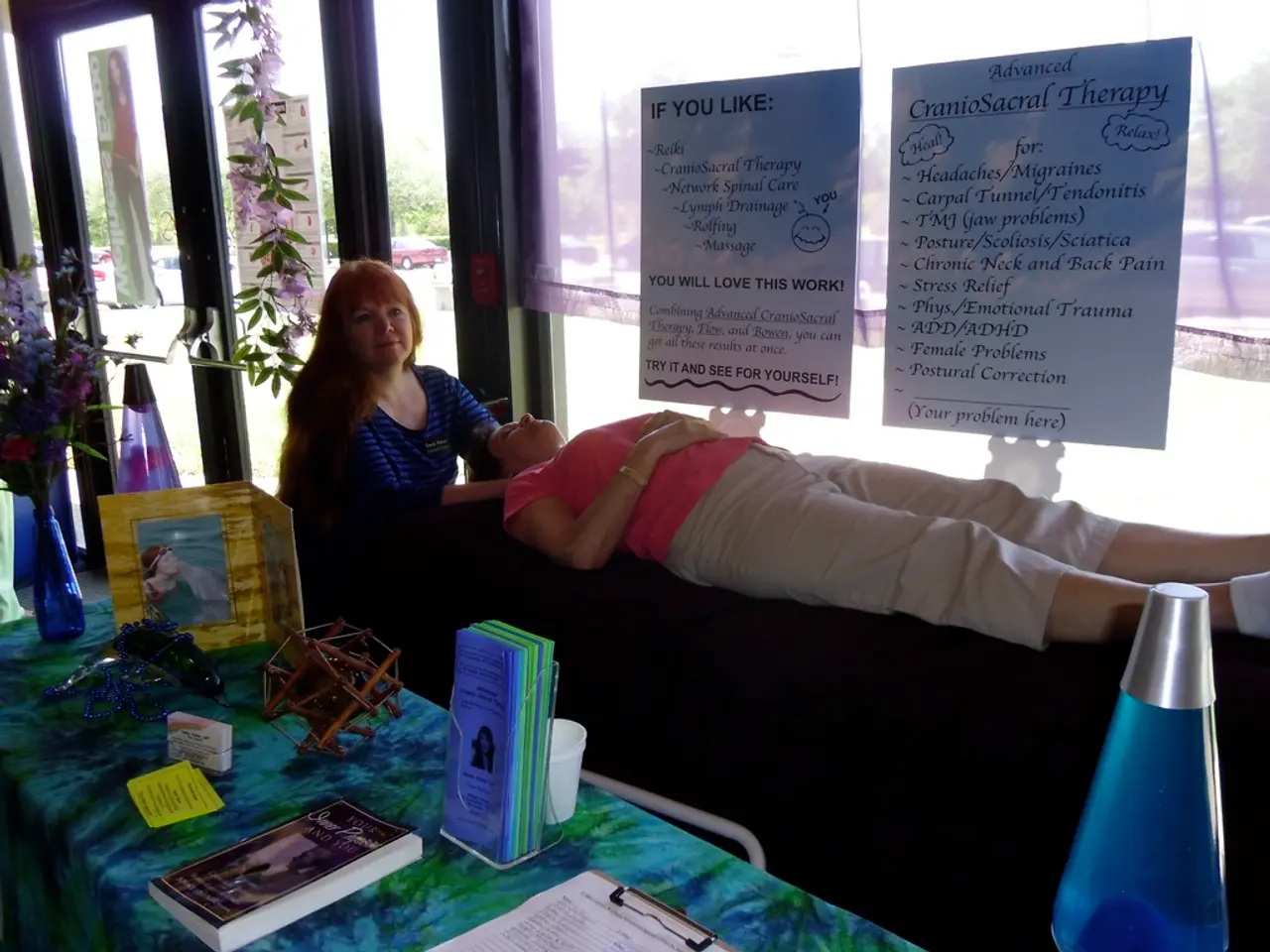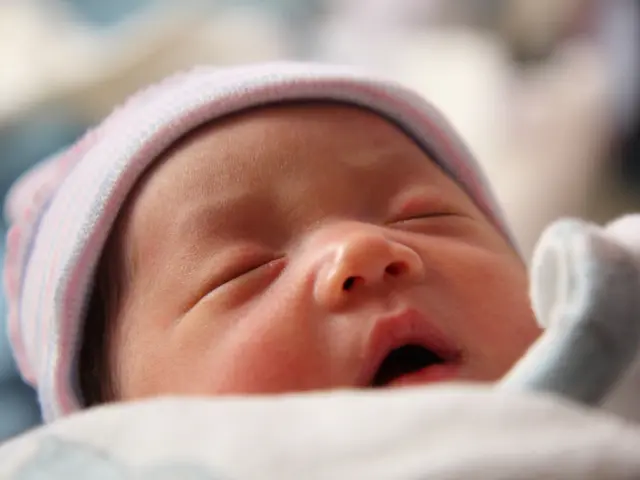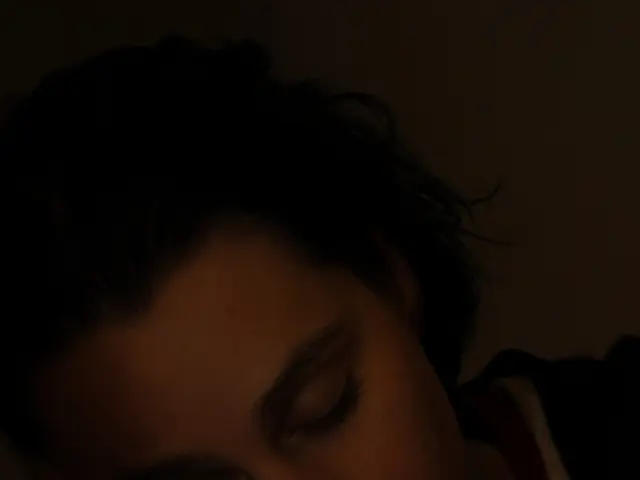Nighttime disruptions during perimenopause explained by Dr. Amir Khan: 5 underlying hormonal factors contributing to sleep disturbances.
Revamped Article:
Hey there! If your sleep game's not as strong as it used to be during perimenopause, you're not alone. Lots of women deal with disruptive sleep patterns, funny mood swings, and some weird bathroom habits during this life phase.
According to Dr. Amir Khan, who's our go-to GP over at woman&home, the hallmark of menopause is those aggravating hot flushes and night sweats we all sigh about. But, believe it or not, there's a lot more going on that affects our sleep – and we're spilling the (sleep-friendly) tea!
Recent research shows that 78% of women in menopause report sleep issues, while 65% report experiencing hot flashes and night sweats. So, if you're finding it tough to snooze, you're definitely not alone.
In the video, our trusted doc breaks down the major culprits behind your restless nights.
Sleepless Nights: Top Culprits
1. "In-your-face" Hot Flashes
"These are the hot flashes and those darn night sweats!" says the doc. "They are the telltale signs of menopause and are caused by fluctuating and dropping estrogen levels messing with your hypothalamus, the body's temperature regulator in the brain."
These sudden waves of heat get in the way of your beauty sleep, waking you up in the middle of the night and making it tough to drift off again.
2. Circadian Rhythm Changes
Your circadian rhythm, aka the body's internal clock, is controlled by a cluster of cells in the hypothalamus. It's responsible for our sleep-wake cycle, hormone release, body temperature, and essential bodily functions.
"Estrogen and progesterone have a big impact on brain sleep-wake cycles," he says. "Decreased levels can result in diminished melatonin production – that's the hormone that helps regulate sleep – leading to fragmented and lighter sleep."
3. Increased Anxiety
Feeling stressed, moody, or even a bit blue? Mood disorders and increased anxiety in menopause could be messing with your rest.
"Menopause is associated with changes in neurotransmitters like serotonin and GABA, contributing to mood swings, anxiety, and even depression," says Dr. Khan. "All of which can make sleep tough to come by."
4. Nighttime Runs to the Bathroom (Nocturia)
"Decreasing estrogen levels can affect the urine retract and bladder function, often causing an increase in nighttime bathroom breaks, which interrupts sleep continuity," he says.
5. Sleep Disordered Breathing
Conditions like sleep apnea can cause longer-term health issues.
"Menopause is linked to weight gain and changes in upper airway muscle tone, increasing the risk of obstructive sleep apnea," the doctor says. "This leads to repeated breathing interruptions during sleep, causing fatigue and wreaking havoc on your sleep quality."
What to do when Menopause Means No Sleep
Knowing the causes of your sleepless nights can help you "take targeted steps towards better sleep in menopause," says Dr. Khan. "So, don't be shy about chatting with your GP about it."
Until then, follow these tips from the National Institute on Aging to catch some Zzz's:
- Be a Regular Snoozer: Sticking to the same sleep schedule every night can help get your circadian rhythms back on track.
- Skip the Daytime Naps: Snoozing in the afternoon or evening can make catching shut-eye at night harder.
- Practice Excellent Sleep Hygiene: A relaxing bedtime routine and the right sleep environment can make a big difference.
- Keep Your Room the Right Temperature: A cooler room will help you sleep better during the heat of the summer.
- Exercise Regularly, but Not Too Close to Bedtime: Exercise can help you sleep, but working out too close to bedtime might make it harder to fall asleep.
- Watch Your Meals: Avoid stuffing your face at night, as the body needs time to digest food before settling down for sleep.
- Limit Caffeine and Alcohol: Though a glass of wine might seem tempting, even small amounts can make it harder to stay asleep.
- The absence of estrogen and progesterone during menopause can impact brain sleep-wake cycles, leading to decreased melatonin production and fragmented sleep.
- Nighttime trips to the bathroom during menopause, known as nocturia, can result from decreasing estrogen levels and their effects on urine retract and bladder function.
- Increased anxiety, mood swings, and even depression in menopause, caused by changes in neurotransmitters like serotonin and GABA, may interfere with sleep.
- Sleep disordered breathing conditions such as sleep apnea, linked to weight gain and changes in upper airway muscle tone during menopause, can contribute to repeated interruptions in breathing and poor sleep quality.
- Implementing good sleep hygiene practices, such as sticking to a regular sleep schedule, avoiding daytime naps, practicing a relaxing bedtime routine, maintaining a suitable sleep environment, exercising regularly (not too close to bedtime), managing meals throughout the day, and limiting caffeine and alcohol consumption can help combat sleep issues during menopause.








